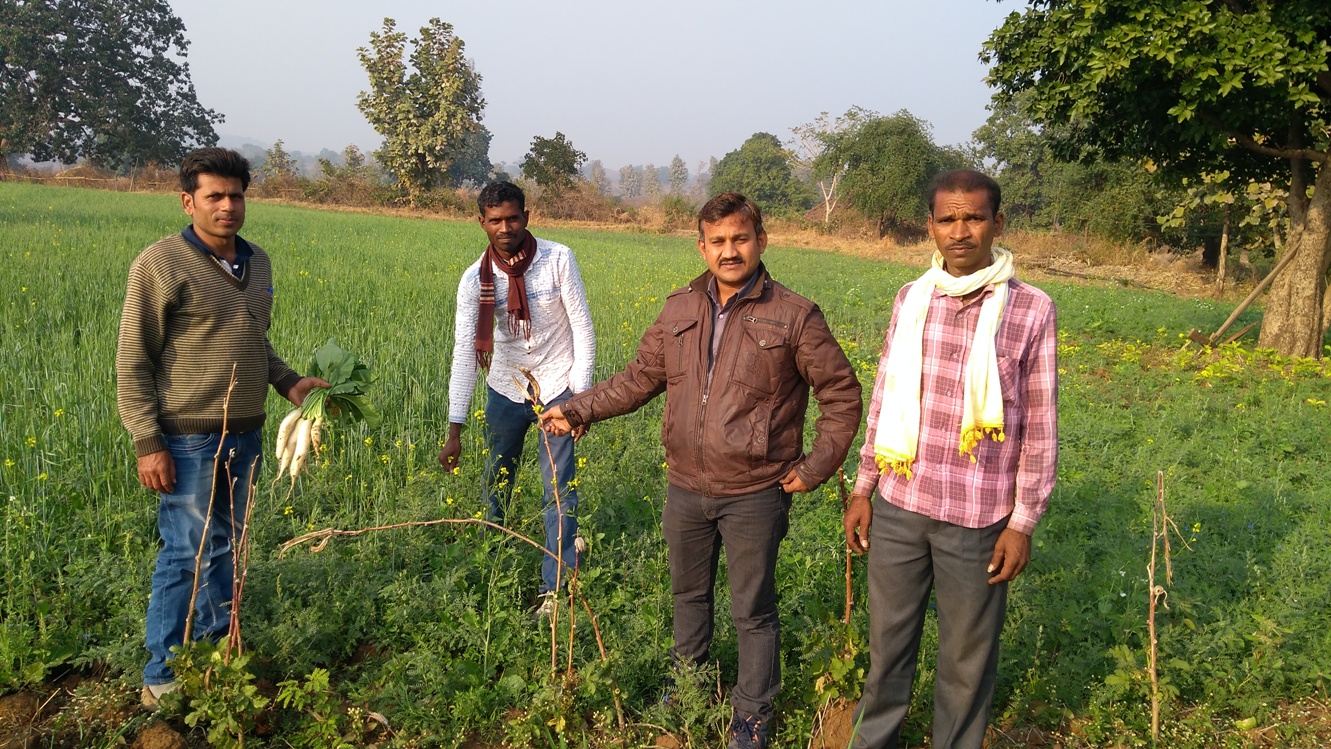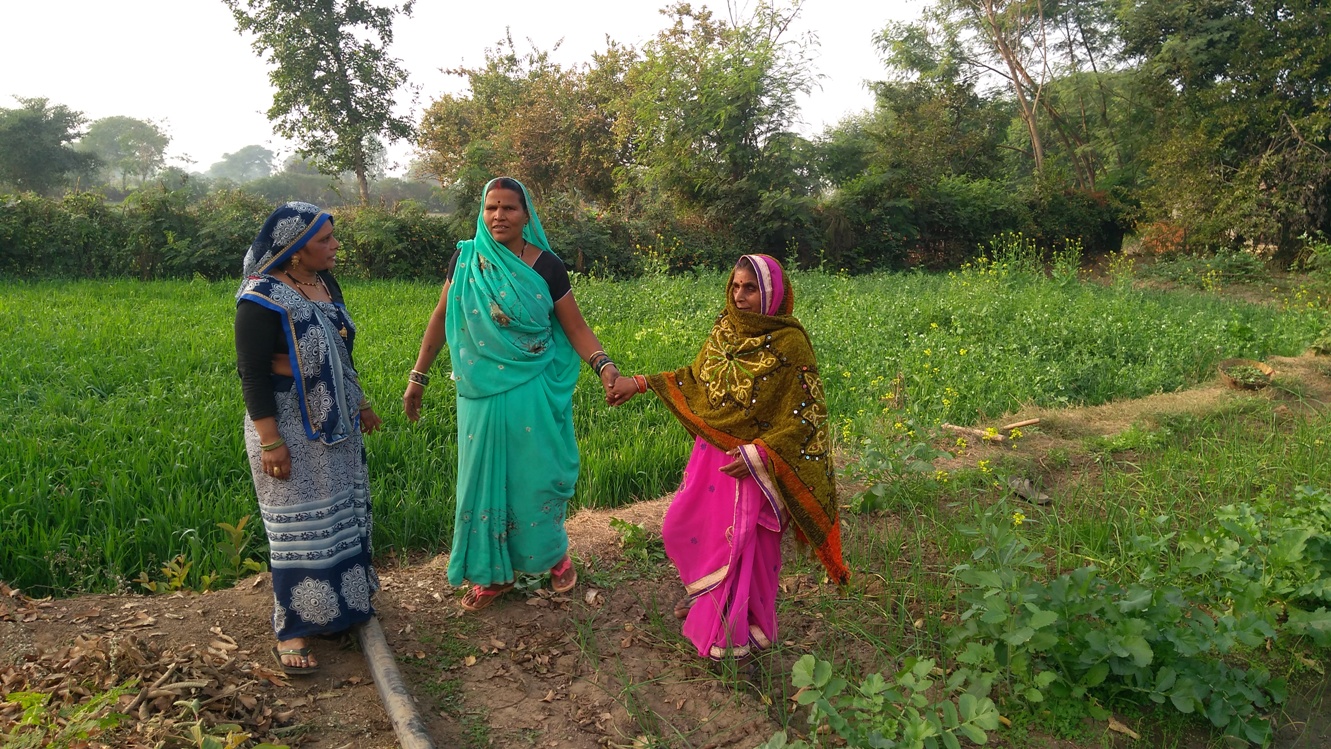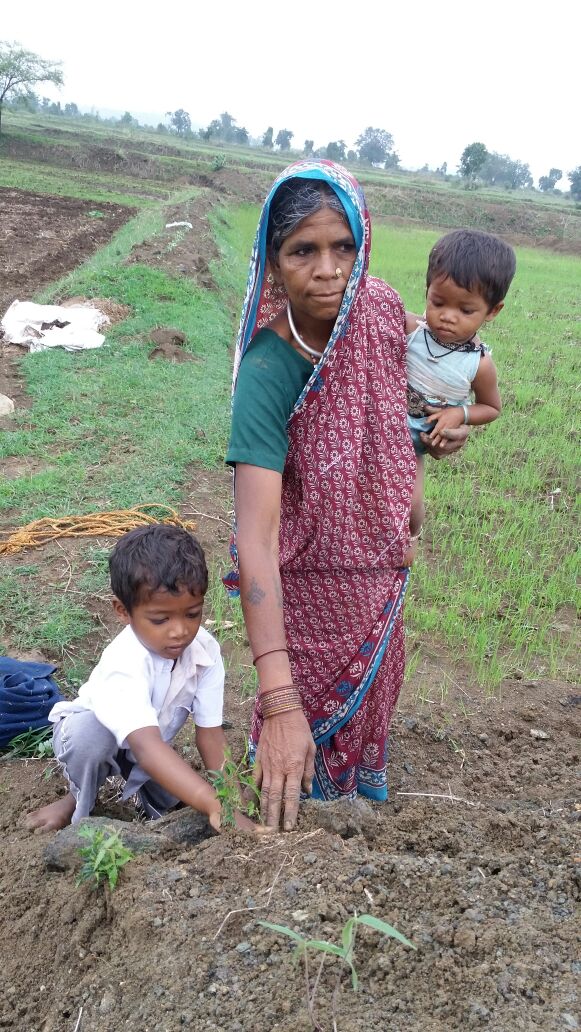Organic Agriculture - A Wholestic approach to sustain the livelihood of farmers, No one leaving behind.
Description
We engaged in Organic farming to fix the Livelihood of Tribal Farmers in M.P.. The impact of farming will cover SDG goal no. 1, No poverty, SDG goal no. 2 zero hunger, SDG goal no. 3 good health & well being by organic farming. Also covering SDG goal no. 13 Climate action directly concerned organic farming , Also covering the SDG goal no. 15 Life on land .Incapacitating the Disables especially “Visually Impaired Persons” to empower them through Agri and Allied Livelihoods in SHGs and Individuals ever first time in India for Social Inclusion.
Sustain the Livelihood of Tribal Farmers in M.P. and India which will impact of farming cover wholestic development of human being . All these practices covering SDG goal no. 1, No poverty which will be removed when farmers input cost reduced and income increased by production, SDG goal no. 2 zero hunger, SDG goal no. 3 good health & well being by organic farming, Also covering SDG goal no. 13 Climate action directly concerned organic farming , Also covering the SDG goal no. 15 Life on land. For sustaining the Incapacitating the Disables especially “Visually Impaired Persons” to empower them through Agri and Allied Livelihoods in SHGs and Individuals ever first time in India for Social Inclusion work related to the SDG goal no.1, SDG goal no. 4, and SDG goal no. 5 Gender equality covered. Differently abled person can also perform well as the agriculture by organic method.<br />
If properly applied, planning for climate change adaptation can potentially increase the sustainability of all agriculture by introducing practices such as agro-forestry and the diversification of crop rotations, and by helping to establish healthy soils and diversified production systems, in conventional contexts as well as in organic. Organic agriculture sustain the climate change and hence reduce the global warming.
Systemic approaches to soil fertility and biodiversity are one key to the successful adaptation of agriculture.Keeping PGS certificaation since 3 years course we formed 99 PGS groups each group having 45-50 farmers. Now our motto to support Tribal farmers of Mandla , Dindori Seoni, Chindwara and in MP .Historically families of Gondwana region have labored in subsistence farming to produce traditional crops of rice, maize, minor millets and pulses. Environmentally responsible tribes of region who revere nature as goddess have stayed away from chemical fertilizers and poisonous pesticides so far. Previously individual farmers would sell their produce to local traders at dismal prices for want of immediate cash. But with spread of awareness they decided to change it. Last year these farmers came together to form Producer Company with hope of fetching just prices for their environmentally responsible farming that demands hard manual labour. Mandla is a beautiful place in east of Madhya Pradesh bordering Chhattisgarh. Most of the land area is covered with forest and pristine rivulets. Tribal Orgnaic is a farmers producer company [FPC] registered under companies act with more than 15000 farmers as its shareholders. It is a collective effort by farmers of Gondwana to change their destiny
.Sustain the Livelihood of Tribal Farmers in M.P. and India which will impact of farming cover wholestic development of human being . All these practices covering SDG goal no. 1, No poverty which will be removed when farmers input cost reduced and income increased by production, SDG goal no. 2 zero hunger, SDG goal no. 3 good health & well being by organic farming, Also covering SDG goal no. 13 Climate action directly concerned organic farming , Also covering the SDG goal no. 15 Life on land. For sustaining the Incapacitating the Disables especially “Visually Impaired Persons” to empower them through Agri and Allied Livelihoods in SHGs and Individuals ever first time in India for Social Inclusion work related to the SDG goal no.1, SDG goal no. 4, and SDG goal no. 5 Gender equality covered. Differently abled person can also perform well as the agriculture by organic method.We are working for Organic farming to fix the Livelihood of Tribal Farmers in M.P. and India. Incapacitating the Disables especially “Visually Impaired Persons” to empower them through Agri and Allied Livelihoods in SHGs and Individuals ever first time in India for Social Inclusion. If properly applied, planning for climate change adaptation can potentially increase the sustainability of all agriculture by introducing practices such as agro-forestry and the diversification of crop rotations, and by helping to establish healthy soils and diversified production systems, in conventional contexts as well as in organic. Organic agriculture sustain the climate change and hence reduce the global warming.
All these practices covering SDG goal no. 1, No poverty which will be removed when farmers input cost reduced and income increased by production, SDG goal no. 2 zero hunger, SDG goal no. 3 good health & well being by organic farming, Also covering SDG goal no. 13 Climate action directly concerned organic farming , Also covering the SDG goal no. 15 Life on land. For sustaining the Incapacitating the Disables especially “Visually Impaired Persons” to empower them through Agri and Allied Livelihoods in SHGs and Individuals ever first time in India for Social Inclusion work related
Fund
Support
and
Guidelines... will support to select practices and will make it success.
Govt, Personal and agencies. Systemic approaches to soil fertility and biodiversity are one key to the successful adaptation of agriculture. With its core values and characteristics, organic agriculture has already adopted such approaches and therefore represents a promising adaptation strategy. Additional benefits come from the synergies between adaptation and mitigation that can be realized by increasing soil organic matter. It has been shown that organic agriculture is a promising adaptation strategy. To achieve a broader impact some core practices of organic agriculture, such as the high diversity of crops and practices, and the use of organic fertilizers and legume leys, should also be promoted for use in conventional agriculture without the necessity of full conversion to organic production. If properly applied, planning for climate change adaptation can potentially increase the sustainability of all agriculture by introducing practices such as agro-forestry and the diversification of crop rotations, and by helping to establish healthy soils and diversified production systems, in conventional contexts as well as in organic. Organic agriculture sustain the climate change and hence reduce the global warming.
NGO, Govt, Personal and agencies. Systemic approaches to soil fertility and biodiversity are one key to the successful adaptation of agriculture. With its core values and characteristics, organic agriculture has already adopted such approaches and therefore represents a promising adaptation strategy. Additional benefits come from the synergies between adaptation and mitigation that can be realized by increasing soil organic matter. It has been shown that organic agriculture is a promising adaptation strategy. To achieve a broader impact some core practices of organic agriculture, such as the high diversity of crops and practices, and the use of organic fertilizers and legume leys, should also be promoted for use in conventional agriculture without the necessity of full conversion to organic production. If properly applied, planning for climate change adaptation can potentially increase the sustainability of all agriculture by introducing practices such as agro-forestry and the diversification of crop rotations, and by helping to establish healthy soils and diversified production systems, in conventional contexts as well as in organic. Organic agriculture sustain the climate change and hence reduce the global warming.
Consequences of Climate Variations in Agriculture .... Organic Farming India country is facing unpredictable weather for last few years. The rate of CO2 release into the atmosphere has increased 30 times during the last 3-4 decades. Many serious impacts like- erratic monsoon, migration of agricultural zones, spreads of tropical disease, sea level rise, change in availability of fresh water, floods, droughts, heat waves, storms, hurricanes etc. About 130 million hectares land is undergoing different levels of degradation, Moreover, due to change in climate either of the side increase or decrease in temperature also lead destructive effects, such as immature, unfilled grains degradation in size and quality.Organic Farming practices control the poverty and upgrade the livelihood of tribal farmers and PWD farmers.<br />
<br />
A farmers group formed acting with more than 15000 farmers as its shareholders. It is India's first group having with certified organic produce. It is a collective effort by farmers of Gondwana to change their destiny. This groupis to build a prosperous and sustainable organic agriculture sector by promoting and supporting more than 15000 farmers member-owned producer organizations, That enable farmers to enhance productivity through efficient, cost-effective and sustainable resource use and realize higher returns for their produce, through collective action supported by the government, and fruitful collaboration with academia, research agencies, civil society and the private sector. We are certified by PGS India.Also trained the Differently Abled Person 10 SHG at Jabalpur MP in engaged in the Vegetable production at their filed very first time in the INDIA. Many countries visited for their progress and media covered this activities to support poor and PWD.
SDGS & Targets
Deliverables & Timeline
Resources mobilized
Partnership Progress
| Name | Description |
|---|
Feedback
Action Network


Timeline
Entity
Region
- Asia and Pacific
Geographical coverage
Photos



Website/More information
Countries

Contact Information
RAKESH KUMAR SINGH, Organic Agriculture - Consultant
